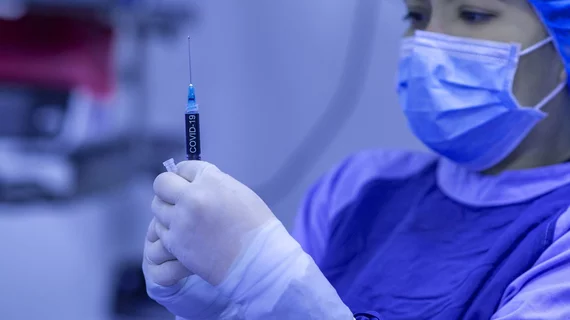Colorado requires healthcare workers to get the COVID-19 vaccine
Healthcare workers in Colorado are required to get vaccinated against COVID-19.
The requirement was approved in a 6-1 vote by the Colorado Board of Health. All employees and contractors in the state’s healthcare facilities are required to have received their first dose of the COVID-19 vaccine by Sept. 30 and be fully vaccinated no later than Oct. 31.
Governor Jared Polis previously asked the board to mandate vaccines for the state’s healthcare workforce, citing a rise in COVID-19 cases among the unvaccinated. Last month, roughly 30% of the state’s healthcare workforce was unvaccinated, according to a local media outlet.
The mandate comes as numerous private and public healthcare organizations, other states and localities consider their own vaccine requirements for healthcare workers. A significant portion of healthcare workers are skeptical of the vaccine’s safety and efficacy, though over 96% of physicians in the U.S. are vaccinated against the virus, according to the American Medical Association.
“The best line of defense against the ... virus is the vaccine,” President Joe Biden said in August. “It’s as simple as that. Period. The vaccine. I want to be crystal clear about what’s happening in the country today: We have a pandemic of the unvaccinated.”
The Colorado mandate does not apply to individual healthcare workers, and healthcare organizations can implement their own exemption policies for medical and religious reasons.

